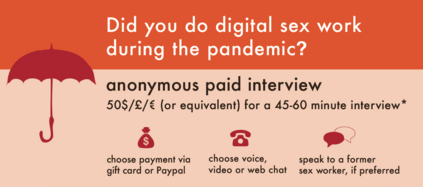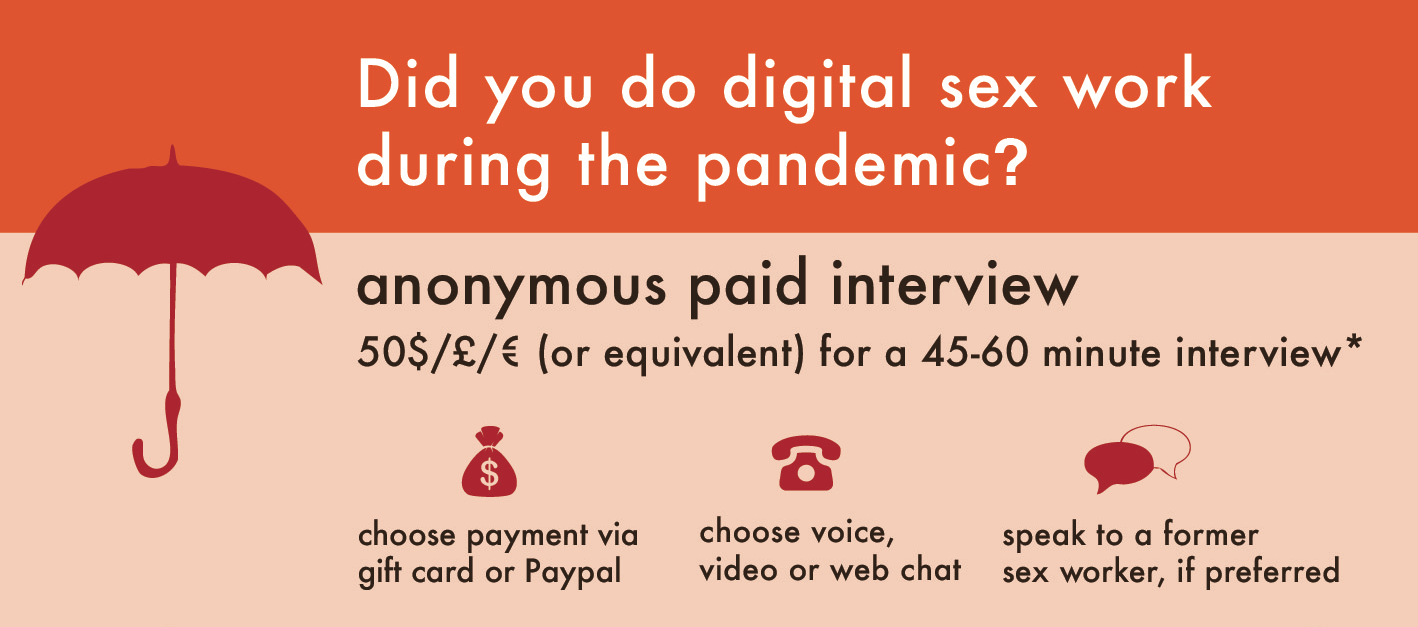Workers from a variety of industries rapidly shifted to remote work at the onset of the COVID-19 pandemic. While existing work has examined the impact of this shift on office workers, little work has examined how shifting from in-person to online work affected workers in the informal labor sector. We examine the impact of shifting from in-person to online-only work on a particularly marginalized group of workers: sex workers. Through 34 qualitative interviews with sex workers from seven countries in the Global North, we examine how a shift to online-only sex work impacted: (1) working conditions, (2) risks and protective behaviors, and (3) labor rewards. We find that online work offers benefits to sex workers' financial and physical well-being. However, online-only work introduces new and greater digital and mental health risks as a result of the need to be publicly visible on more platforms and to share more explicit content. From our findings we propose design and platform governance suggestions for digital sex workers and for informal workers more broadly, particularly those who create and sell digital content.
翻译:在COVID-19大流行之初,来自不同行业的工人迅速转向远程工作。虽然现有工作已经审查了这一转变对办公室工作人员的影响,但几乎没有研究非正规劳动部门从当面工作转向在线工作如何影响到工人。我们研究了从当面工作转向网上工作对特别边缘化的工人群体(性工作者)的影响。通过对全球北方七个国家的性工作者的34次定性访谈,我们研究了转向网上单一性工作如何影响:(1)工作条件,(2)风险和保护行为,(3)劳动奖励。我们发现,在线工作有利于性工作者的财务和身体健康。然而,由于需要在更多平台上公开可见并分享更明确的内容,在线工作带来了新的、更大的数字和心理健康风险。我们从我们的调查结果中为数字性工作者和更广泛的非正规工人,特别是创造和销售数字内容的工人提出了设计和平台治理建议。







